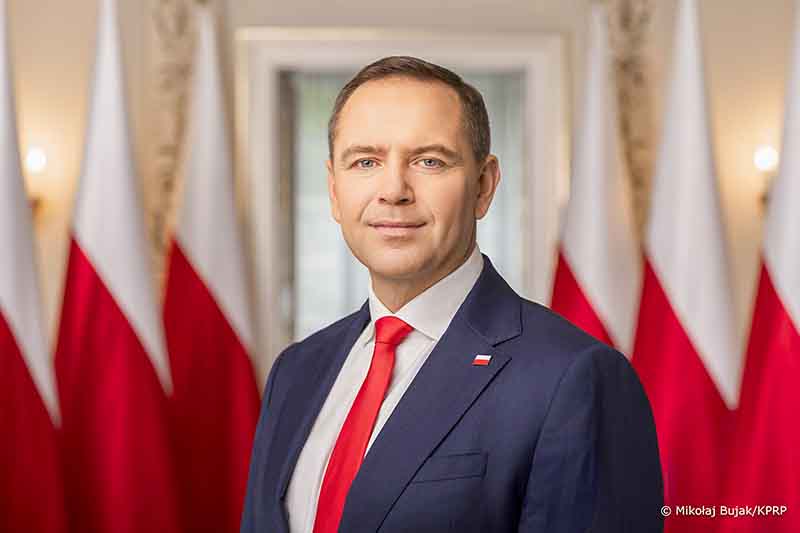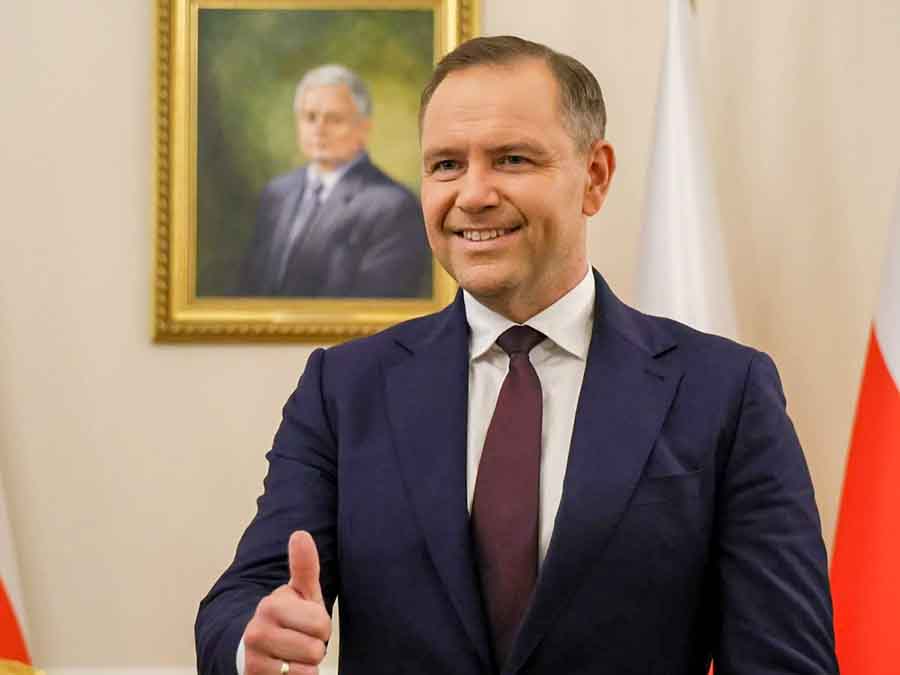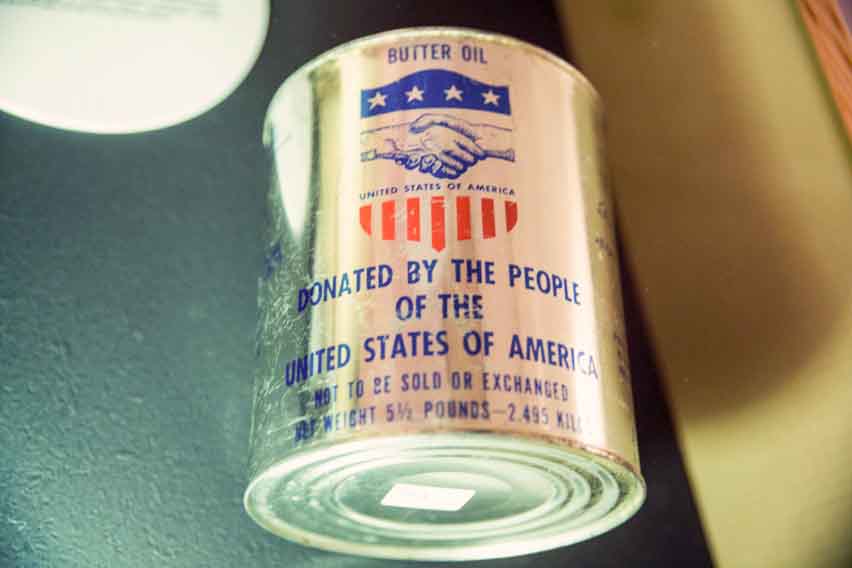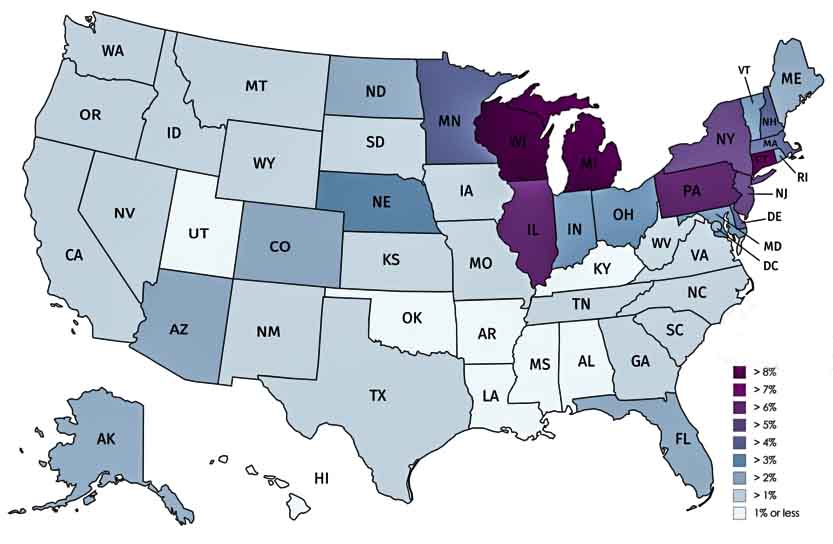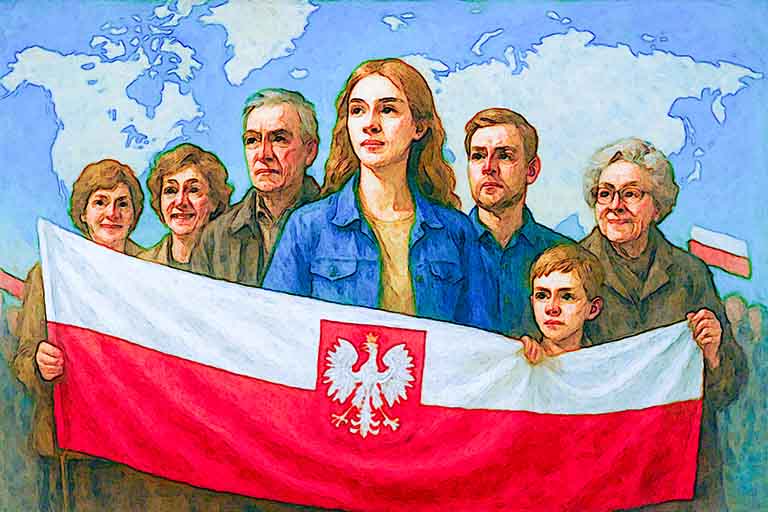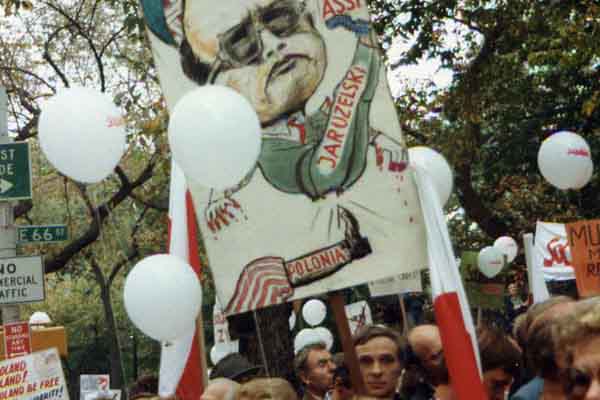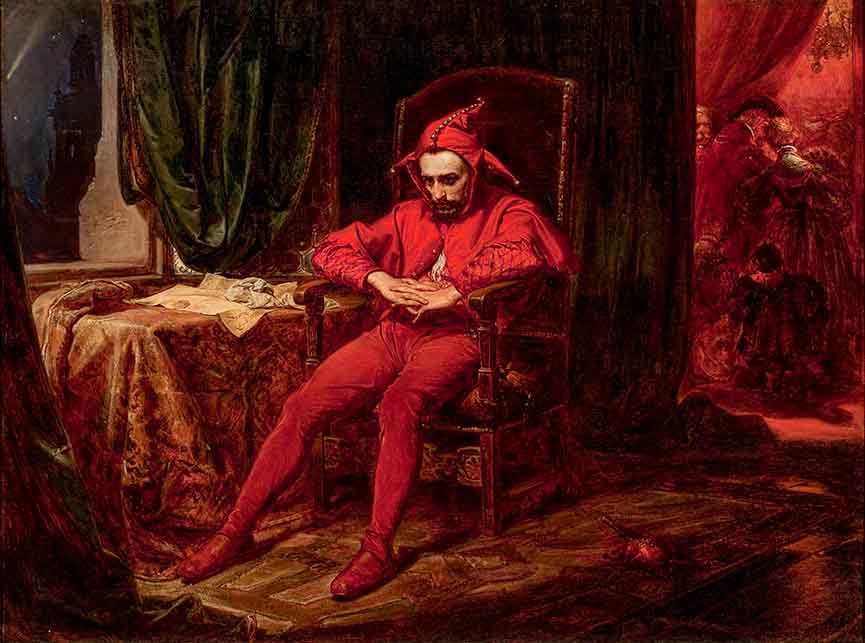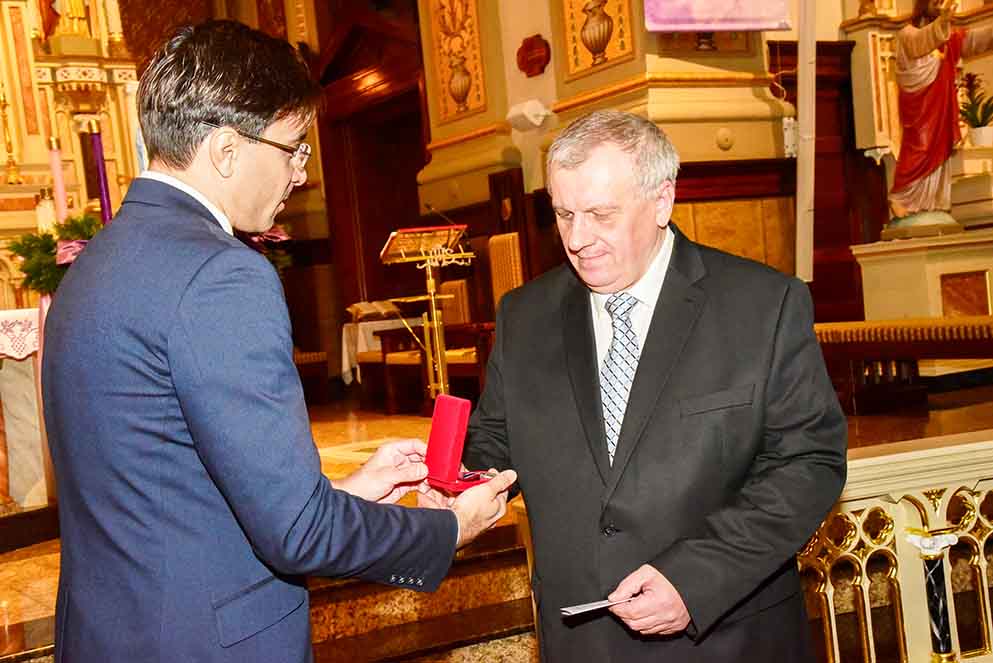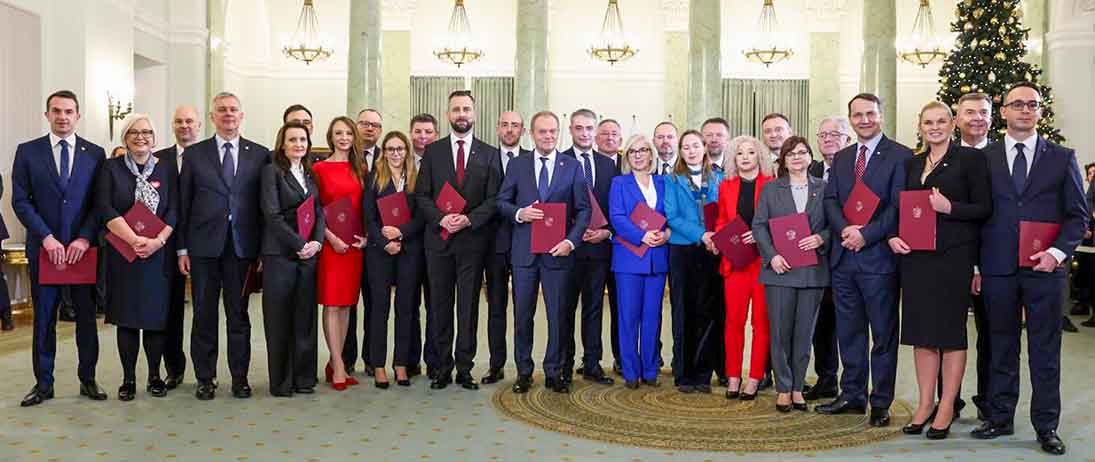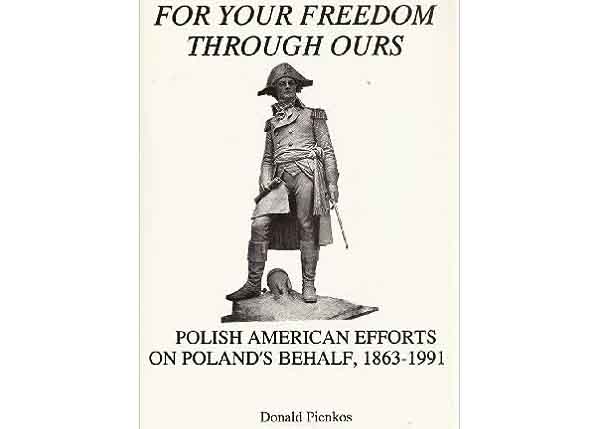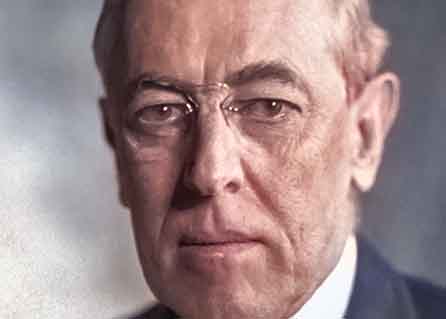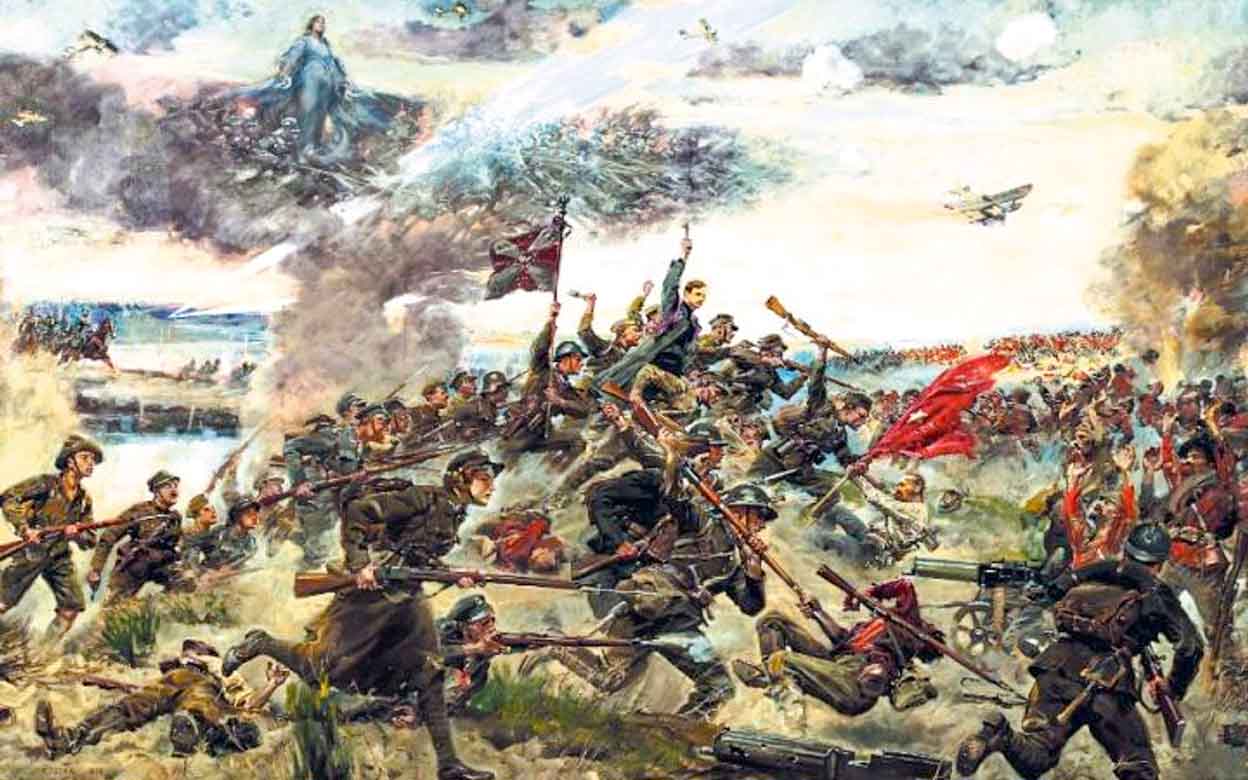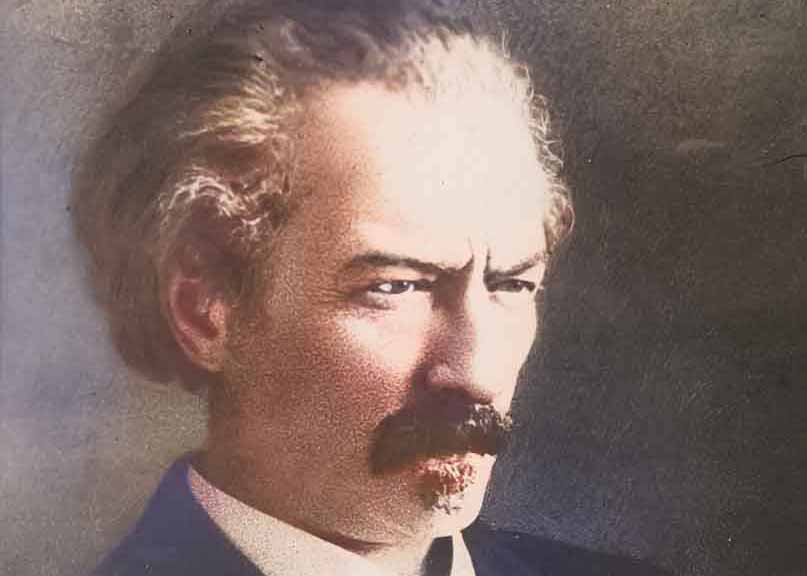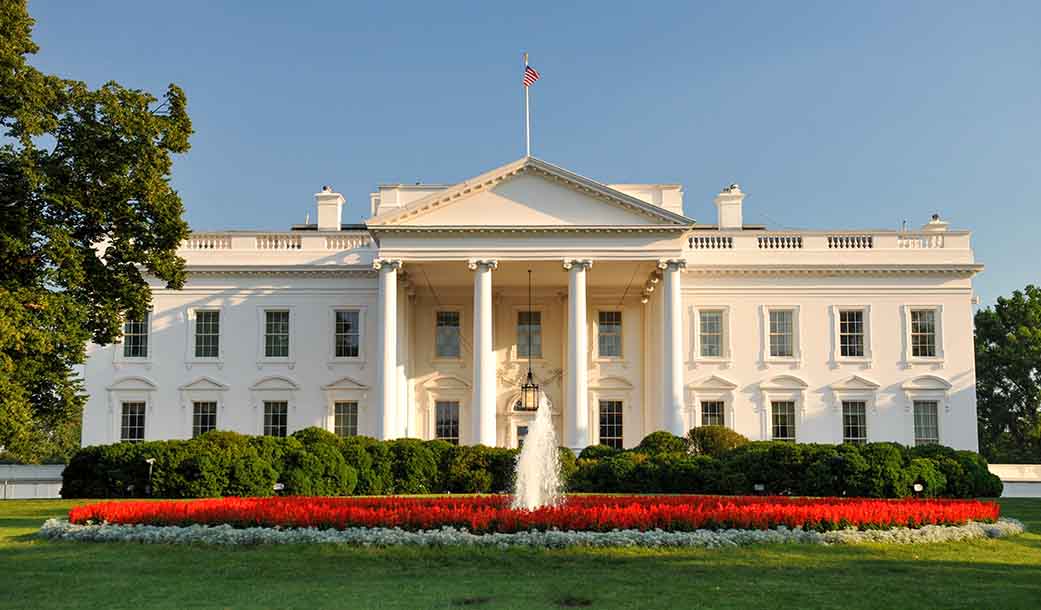Over 100 years ago, Roman Dmowski, in his book Thoughts of a Modern Pole, defined Pax Polonica in a simple, concise way: “I am a Pole, so I have Polish duties. (...) Everyone has the duty to be an active citizen, knowing the state of political affairs in his country and influencing their course according to his strength. Everyone is responsible for the course of these matters."
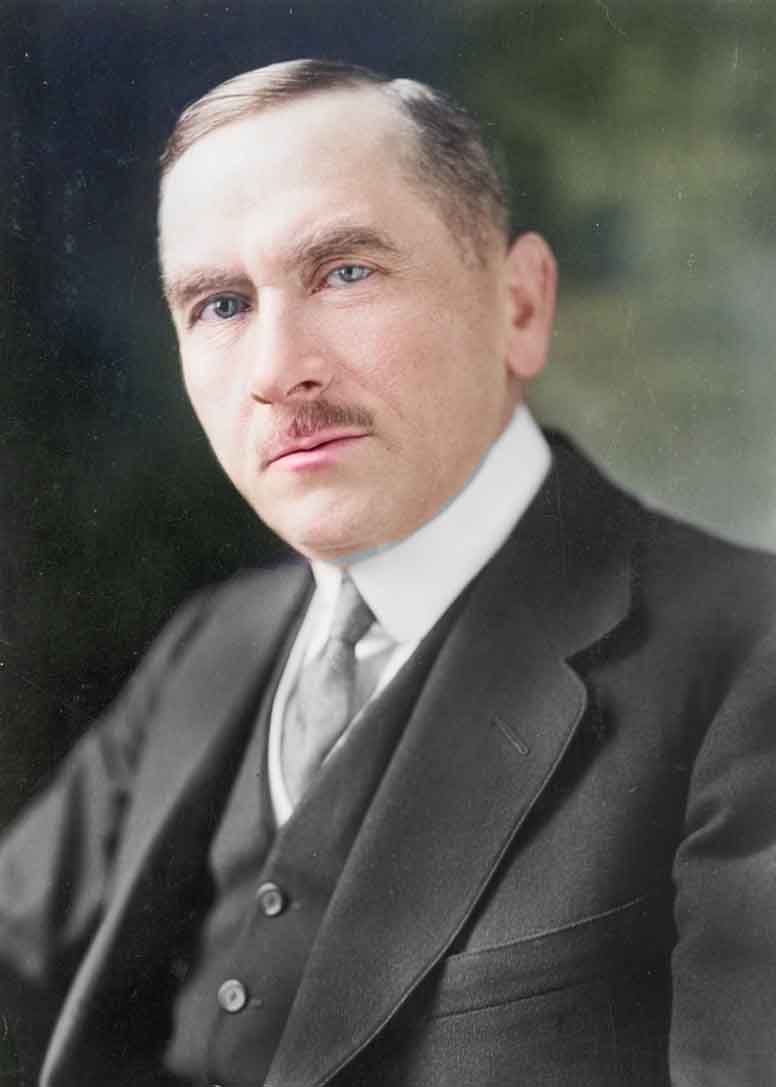
Roman Dmowski in 1919. (Colorization: A. Woźniewicz) (Source: Wikipedia)
Similar ideas echoed around this thought. A decade earlier, in Milwaukee (Wisconsin), Michał Kruszka, editor-in-chief of "Kuryer Polski", in the first issue of the first Polish daily newspaper in the United States, presented the mission of his medium: "«Kuryer Polski» is the only Polish newspaper in America devoted to Polish interests in the United States, Canada, Mexico, Central and South America.
The idea of a sovereign and great Poland matured among emigrant organizations around the world. In their assumptions, all organizations strived to gain Poland's independence and freedom through material aid and armed struggle. This thought was also expressed by the president of the Polish National Association, Marian Stęczyński, at a congress in Washington, in May 1910. It was written down in the form of a motion and adopted unanimously with the following wording: "We, Poles, have the right to an independent, national existence and we consider it our sacred duty to strive to achieve the political independence of our Homeland."
In April 1915, Ignacy Jan Paderewski came from Switzerland to America. Together with Henryk Sienkiewicz, he founded the Rescue Committee for Poland. The result of Paderewski's three-year work in the United States was the recruitment of over 22,000 volunteers to the Polish Army in France, the so-called Blue Army, commanded by General Józef Haller. Paderewski had impressive social resources, namely hundreds of Polish community activists, organizations and the Polish community press, which recognized the authority of the master and submitted to his guidance. Some of them are worth mentioning: Dr. Teofil Starzyński, Jan Smulski, Franciszek Dziób, Jan Styka, and Władysław Benda. Paderewski led to the unification of almost all American Polonia organizations, which gave him formal powers to represent them before the U.S. and allied governments. He created a huge intellectual and financial base around the Polish cause. He gave over 340 speeches and wrote thousands of letters to important personalities of American life.
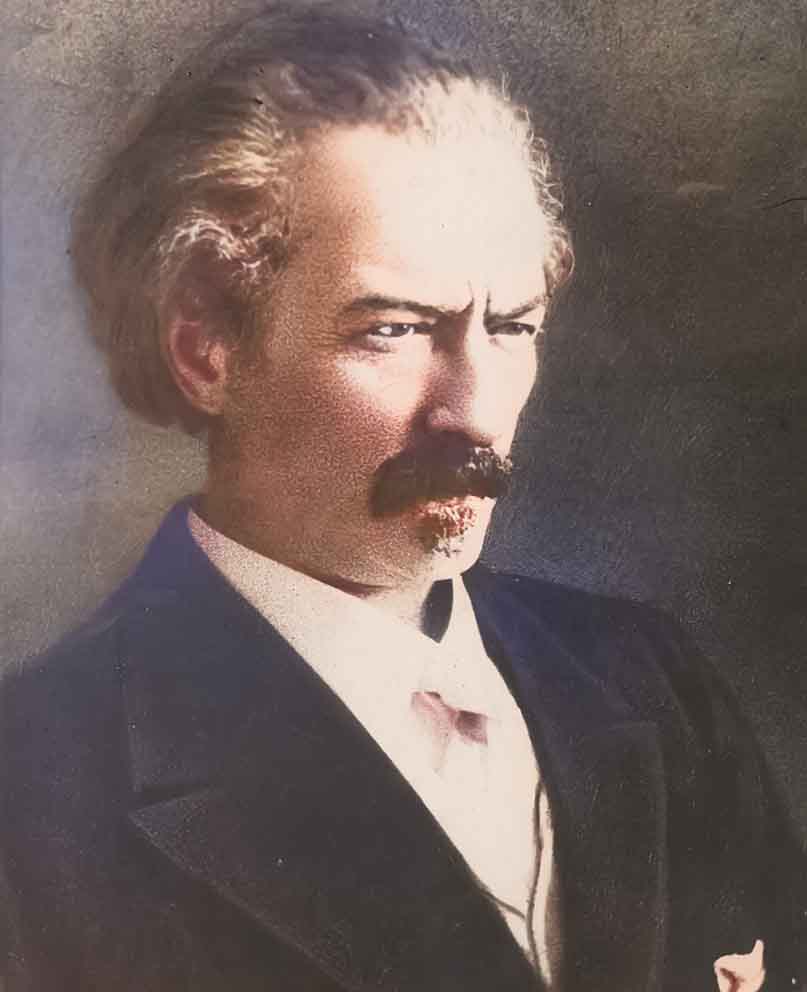
Ignacy Jan Paderewski in the 1920s (Colorization: A. Woźniewicz) (Source: Wikipedia)
In America, Paderewski mobilized Polish and American public opinion for Poland by convening rallies (about 300) at which he spoke and then played. Ignacy Jan Paderewski's friendship with the President of the United States, Thomas Woodrow Wilson, was important. In 1917, the master presented President Wilson with a memorandum on Poland, developed in previous years by emigre intellectuals. Thanks to Paderewski's personal involvement, on October 5, 1917, the president signed a decree allowing Poles from the USA to form their army. On January 8, 1918, the United States also officially spoke on the Polish issue. President Wilson delivered a message to the US Congress, in which he stated in point 13 of his program: "An independent Polish state should be erected which should include the territories inhabited by indisputably Polish populations, which should be assured a free and secure access to the sea, and whose political and economic independence and territorial integrity should be guaranteed by international covenant." [archives.gov]

Thomas Woodrow Wilson (Colorization: A. Woźniewicz) (Source: Wikipedia)
Then there were the Legions that set off from Oleandry, and the Blue Army with Polish immigrants from Niagara-on-the-Lake. This is how the vision of the Polish raison d'état came to be, so that the Glorious Republic would be reborn after 123 years. Today, after two destructive wars, the elimination of Polish elites, two devastating totalitarianisms — German and Soviet — systematic confiscation of Polish property, the Sovietization of the country, and amidst the contemporary cultural revolution, the sovereign Poland is constantly reborn. So far, no one in Poland or in exile has managed to create anything that would go beyond the limits of Dmowski's laconic sentence in terms of quality.
Searching for Pax Polonica in Polish history
Throughout history, the concept of Pax Polonica was manifested by the fact of the existence of Mieszko's state, in which guests "could not lose a hair from their heads" by virtue of custom, not coercion, but also by the fact of adopting Christianity from the hands of the Slavs.
Pax Polonica is also the first important conference, known as the Congress of Gniezno, the foundation of the Cracow Academy in 1364, the concept of the union of the Crown of the Kingdom of Poland and the Grand Duchy of Lithuania, and later the undeniable power of the Polish-Lithuanian Commonwealth.
The diplomacy of Włodkowic and the defeat of the power of the Teutonic Order were aspects of the same phenomenon; the "nihil novi" constitution, guaranteeing "nothing about us without us", Kochanowski's poetry, Andrzej Frycz Modrzewski's concept of a modern state contained in On the Improvement of the Republic. There are also the discoveries and activities of Nicolaus Copernicus.
Pax Polonica is religious tolerance guaranteed in the Warsaw Confederation in 1573, just after the massacre of the Huguenots in Paris. The emanation of Pax Polonica is contained in Czarnecki's words: "I am not from the soil or salt, but from what ails me", but also in saving Europe by John III Sobieski from the deluge of the Ottoman Empire. It is the invincible hussars.
Pax Polonica is the Constitution of May 3 and the achievements of Rev. Professor Stanisław Staszic, it is national uprisings, but also the fight "for our freedom and yours" in the American Revolution and the Spring of Nations, it is also Mickiewicz, Słowacki and Norwid, pearls of patriotism in Chopin's music, the Great Emigration, the cry children of Wrzesin, the First Cadre Company, the Blue Army, and the Miracle on the Vistula.
Paderewski's and Dmowski's diplomatic efforts in the United States led to President Wilson repeating the main premise of the emigration and Dmowski memoranda in his famous speech in point 13.
One should also remember the famous five-hour exposé on all Polish demands that Roman Dmowski gave at the conference ending World War I in Versailles. He presented his speech in English and French: "So I spoke alternately in two languages (...), which made my speech last twice as long."
The crowning achievement of Roman Dmowski and Jan Ignacy Paderewski for the Republic of Poland was the signing of the Treaty of Versailles on June 28, 1919, which recognized Poland's independence.
So Paderewski, Dmowski and Piłsudski, The Five Truths of the Poles — an act of incredible courage of the Polish emigration, passed in Germany while Nazism was raging in Berlin, on March 6, 1938 — Gdynia, the idea of Intermarium, Westerplatte, "God, Honor, Fatherland" on banners, and Captain Pilecki, the Indomitable Soldiers, the Primate of the Millennium, John Paul II and "Solidarity".
We have to talk and write about all this not only locally in Poland, but also globally in many languages. We must address Pax Polonica to global ignorants and enemies of Poland.
The Yalta Conference and the end of Pax Polonica
From 4 to 11 February, 1945, a meeting of the leaders of the anti-Hitler coalition, the so-called The Big Three, which included: Soviet leader Joseph Stalin, British Prime Minister Winston Churchill, and the US President Franklin Delano Roosevelt took place. The conference was decisive in the downfall of Pax Polonica.
The territory of the Republic was cut down in size. Poland lost the Eastern Borderlands to Soviet Russia. Compensation was established in the form of historically Polish and administratively German lands: Lubuska Land, Western Pomerania, East Prussia, Silesia and the former Free City of Gdańsk. The powers agreed to the creation of the Provisional Government of National Unity in Warsaw, which was obliged to conduct free elections on the basis of universal suffrage, but they were falsified.
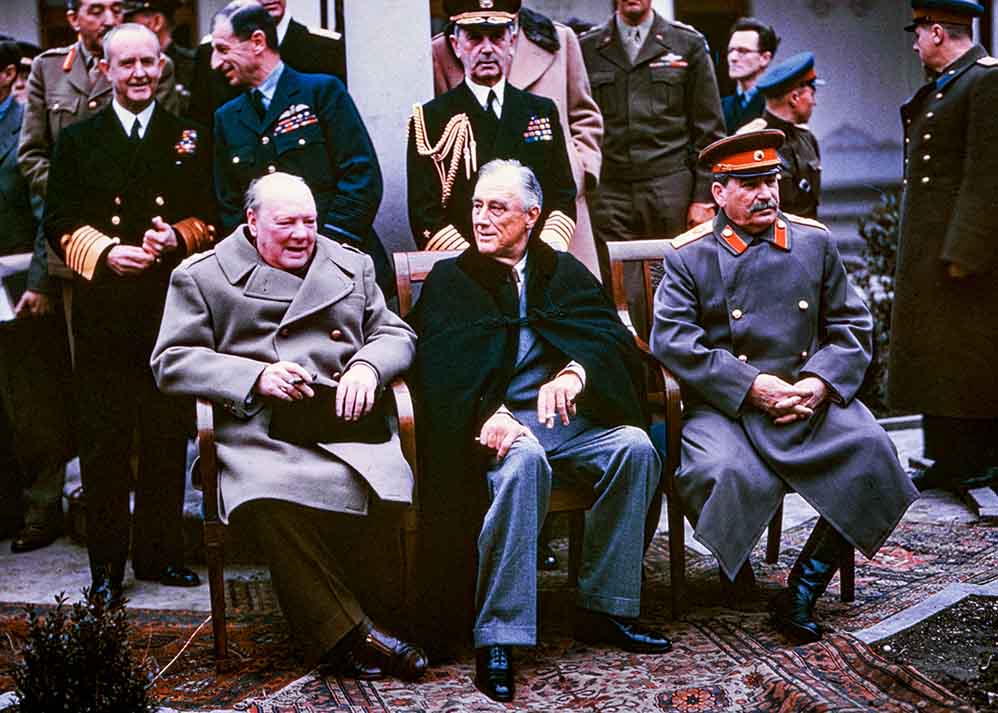
Churchill, Roosevelt and Stalin at the Yalta Conference 1945. (Color: original Kodachrome) (Source: Wikipedia)
Churchill and Roosevelt gave Stalin a carte blanche for the violent destruction of the armed underground — primarily the Home Army and the National Armed Forces. The decisions in Yalta were adopted without the participation and consent of the representatives of the Government of the Republic of Poland in exile, which soon ceased to be recognized. There was no longer Paderewski, Dmowski, Piłsudski, or General Sikorski, who could be ambassadors of the Polish raison d'état.
Churchill broke the provisions of the Polish-British treaty of August 21, 1939, in particular, the provision of the secret protocol, which talked about border guarantees. The treaty of alliance developed earlier British unilateral guarantees of March 31, 1939, and bilateral guarantees contained in the protocol signed on April 6, 1939. It was a document of international law, obliging both signatory parties to provide mutual military assistance in the event of aggression against one of the parties. After the announcement of the Yalta decision, the portrait of Franklin Delano Roosevelt disappeared from the walls in many Polish homes in the USA.
Polish raison d'état and American Polonia
The work of Ignacy Jan Paderewski, Jan Smulski (the first Polish millionaire in the USA), activists of the Falconry Unions, dr. Teofil Starzyński, and of the volunteers of the Blue Army, were continued after World War II by Polish emigrants in America. The first president of the Polish American Congress, Karol Rozmarek, uttered the historic words: “Today, defending Poland is our most sacred and most important duty. It depends on us whether this defense will be just an empty patriotic phrase, or whether it will be a real defense, one of which American Polonia will not have to be ashamed in the future.
These words have never lost their relevance. We are proud of activists such as Karol Rozmarek, Alojzy Mazewski and hundreds of other dedicated patriots working for Poland in various parts of the United States. We had a huge influence on American politics through such personalities as Senator Edmund Muskie, Congressman Klemens Zabłocki, Zbigniew Brzeziński, and many others. It's Prof. Oskar Halecki, an outstanding Polish historian, who introduced the concept of Central and Eastern Europe into the Western terminology.
In Milwaukee, in 1969, prof. Kamil Dziewanowski wrote the book, completely unknown in Poland, Józef Piłsudski. The European Federalist, 1918–1922, published in English by Hoover Institution Press, Stanford University, in which he introduced the idea of the Intermarium to the American elites.
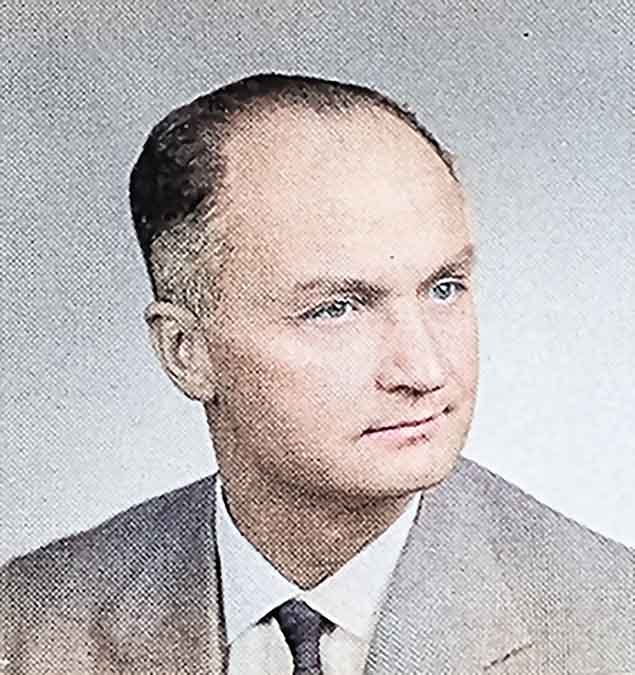
Marian Kamil Dziewanowski in 196 r. (Color: A. Woźniewicz) (Source: Wikipedia)
It is also the work of the Polish community to initiate an investigation in the US Congress into the Katyn massacre and recognize the Soviets as guilty of committing it. This list of merits also includes the influence of American Polonia in ensuring the participation of the USA in the recognition of Polish borders on the Oder and Nysa by the German state; securing US participation in funding Radio Free Europe; issue of an American postage stamp depicting a crowned Polish White Eagle with a Catholic cross for the millennium of the Polish state.
The idea of the Pax Polonica is presented in the books Armed Act of Polish Emigration in America — a Collection of Documents and Historical Materials by Jerzy Walter from 1957 and The Ethos of Independence of American Polonia (Etos niepodległościowy Polonii amerykańskiej) by Władysław Zachariasiewicz. In turn, Edmund Banasikowski is the author of the book For the Call of the Vilnius Country (Na zew Ziemi Wileńskiej, 1990). It is in this book that the author is the first to mention the legendary nurse "Inka" — Danuta Czekakówna — and introduces the concept of "Steadfast Soldiers". In 1989, the Association of Polish Writers Abroad honored him with its award. An emanation of Pax Polonica is the book For Your Freedom Through Ours by Prof. Donald Pienkos. In 2008, Professor Anna Cienciała publishes a book in the US entitled Katyn: a Crime Without Punishment.
The list of merits and well-executed ideas can be continued for a long time; in addition, hundreds of millions of dollars were sent to Poland.
Articles by Polish scientists and radio broadcasters in Voice of America and Radio Free Europe perfectly fit into this narrative: about Katyn, about the Polish Armed Forces in the West, about the Home Army, the National Armed Forces, about the crimes of the gulags, the Holocaust, about Polish traitors in the service of Moscow, and about many issues supporting Polish national identity.
It was the next president of the KPA, Edward Moskal, who, since 1994, lobbied with Americans of Polish descent and all friends of Poland to get a petition signed by 9 million American citizens to the American administration's desks regarding the admission of Poland to NATO.
Homo Sovieticus and Pax Polonica
The Red Army, which entered Poland twice, together with the NKVD, makes the final disposition of the elites of the independent Poland. Poland was swept by a new wave of terror, political murders, rapes, and ubiquitous censorship. This process is perfectly illustrated by Stalin's words: "This war is different from all previous ones: whoever occupies a territory establishes his own social order. Each introduces his system where his army enters. It cannot be otherwise.”
What the Germans did not manage to do during the 5 years of occupation, the Soviets completed. Both occupants exterminated the Polish intelligentsia: academics, lawyers, doctors, senior state officials, social activists, as well as scouts, priests, reserve officers, artists - leading representatives of the Polish nation. The symbols of extermination are Katyn, the Auschwitz concentration camp, Pawiak, the gulags of Soviet Russia, the Augustów manhunt, the increasingly forgotten cemetery in Palmiry, and hundreds of others like it. Since the end of World War II, there is still a lack of comprehensive research, numbers, or synthetic analyses of losses. Professor Bogdan Musiał writes:
On August 16, 1945, an agreement was concluded between the Provisional Government of National Unity and the Soviet Union on compensation for war damage caused to Poland by Germany. Pursuant to this agreement, the Soviet Union renounced all claims to former German property and other assets throughout Poland. This is what the treaty says, but Molotov decided that the property taken over by Poland as a result of joining the Northern and Western Territories exceeded the value of reparations, which meant that Poland became a debtor of the Soviet Union. For this reason, the Polish government was obliged to provide annual coal supplies at special prices (around 10% of world prices). From the beginning of 1945, on the territory of today's Poland, Soviet commandos carried out a systematic robbery - they dismantled and transported the industrial infrastructure: entire factories, power plants, mills, devices, railway tracks, telephone stations, slaughterhouses, raw materials, semi-finished products, cattle - from all over "liberated" Poland. This robbery was planned and carried out systematically on Stalin's personal orders.
This is how the Russian scientist Alexander Zinoviev put it:
Since 1944, the Sovietization of Polish social and political life has been going on. It is, in effect, an experiment of social engineering, the aim of which is to replace the model of the Polish Catholic patriot with the model of the Polish Soviet man, a.k.a. homo sovieticus. For this purpose, thousands of so-called experts with families who held key positions in all state structures were brought in from the Soviet Russia. On July 22, 1952, the Sejm adopted the constitution. It proclaimed that »the Polish People's Republic is a country of people's democracy«, in which «the power belongs to the working people of towns and villages». The draft constitution was developed on the basis of Soviet models and was personally corrected by Joseph Stalin. Thus, the Sovietization of Poland became a key stage leading to the consolidation of the Iron Curtain in Central and Eastern Europe and the full subordination of Eastern European countries to the Soviet Union.
An example illustrating social engineering is the figure of Marian Rejewski, a Polish mathematical genius and the conqueror of the famous German Enigma, who spends the rest of his life at his desk in the Bydgoszcz Electronic Computing Techniques Plant, but under the careful supervision of the Security Office and then the Security Service. He was not allowed to design anything new, nor to contact the outside world.
Others, such as the greatest lover of Polish pre-war cinema, Aleksander Żabczyński, a participant in the fights at Monte Cassino, never acted in any film in post-war Poland. Instead, the working-peasant class was promoted. »Not a high school diploma, but a sincere desire will make you an officer«. The promotion of the new elites is underway, which often has them enter Polish universities, courts, cultural institutions, the Ministry of Foreign Affairs and other important institutions straight from the Security Office, with a whip in their hands dripping with the blood of patriots. This process continues and multiplies to this day. Bierut's descendants continue to power the staff of the Ministry of Foreign Affairs, and the »March docents« depress the ratings of Polish universities.
And, indeed, the face of Poland, plowed through by two barbaric totalitarianisms during the six war years, was changed beyond recognition. Nearly 6 million Polish citizens were killed or murdered. The Republic suffered material losses that are difficult to estimate and nearly half of its pre-war territory was taken away. During the German and Soviet occupation, our country lost: 57 percent of lawyers, 39 percent of doctors, 30 percent of clergy, mainly Catholic, almost one-third of the academic staff.
Most of the elites who emigrated from Poland after the outbreak of war did not return, including many intellectuals, artists, politicians, officials, and officers. Poland controlled by the Soviets and their Polish helpers was not the country for whose freedom they had been fighting, with arms or words, since September 1, 1939.
The 3rd Republic and Pax Polonica
"Getting along", according to Włodzimierz Czarzasty, an activist of the post-communist SLD, representatives of the so-called constructive or democratic opposition with the communists at the Round Table in 1989 resulted, among others, in not allowing the representation of patriotic, pro-independence and Polish emigration communities within power structures. We know that, after 1989, the Polish emigration was not included in the political bloodstream of the reborn Poland. This is evidenced by a document published by the Military Historical Bureau. The document dates from February 15, 1990. It presents the case of the previously planned meeting between the President of the Republic of Poland in exile, Ryszard Kaczorowski, and the Prime Minister of the Republic of Poland in Warsaw, Tadeusz Mazowiecki, during his visit to Great Britain, which ultimately did not take place for reasons of protocol:
President Ryszard Kaczorowski and his government proposed a meeting with the Polish delegation on February 12, 1990, in a separate room, after the meeting of Prime Minister Mazowiecki with the Polish community in London at the Polish Social and Cultural Centre, observing the ceremonial "entrance of the President of the Republic of Poland" — which Prime Minister Mazowiecki considered humiliating towards President Jaruzelski, his own government, and the state.
During the meeting with the Polish community, Prime Minister Mazowiecki was asked: "Why are there still communists in his government, and Wojciech Jaruzelski is the president?" Prime Minister Mazowiecki replied: "Thanks to these people, changes have taken place in Poland, and I am the prime minister." Thus, it was decided to adopt a transformation model in accordance with the contract agreed at that time.
In the Polish political debate, the figure of Adam Michnik, a historian by education, is misrepresented. In 2013, he wrote in the influential German weekly "Der Spiegel" that the Poles need to be taught democracy, because they lack democratic traditions in this part of Europe:
Eastern Europe had a strong desire for freedom, but no democratic tradition, hence the threat of anarchy and chaos. We are illegitimate children, bastards of communism, that shaped our mentality.
As if Poland had no past, as if the Second Polish Republic, the Polish-Lithuanian Commonwealth, and the Constitution of May 3 did not exist before.
Today, for those "visions", which were often projections of personal political ambitions, we — as a state — pay a heavy toll — we are a country economically colonized by Germany, and the mistakes of Germany's foreign policy are clearly demonstrated by Russia's brutal aggression against Ukraine.
Pax Polonica and the war in Ukraine
There is a war going on in Ukraine. All analysts say that it will change the image of Europe. As Prof. Tomasz Grzegorz Grosse says:
We are witnessing a process in which the countries of Central and Eastern Europe are no longer oriented towards the West or the East, but they begin to orient themselves towards one another. Due to the deepening problems of Western Europe, the countries of the "new Union" are increasingly beyond the control of Berlin and Paris.
Whether the politicians of Germany and France unequivocally rejected the idea of Europe from "Vladivostok to Lisbon" and the defense of the strategic Russian-German partnership, it will become clear after the conclusion of the peace between Russia and Ukraine. This policy is aimed rather at waiting out the conflict and putting pressure on Ukraine in order to conclude such a compromise that would allow it to do business with Moscow again. What's next for Europe? As the "Mitteldeutsche Zeitung" from Halle writes:
It's time to call German mistakes by their name. There is a geopolitical game going on in which Germany definitely loses. The image of a moral state that is ready to take responsibility for the fate of Europe may collapse like a house of cards. It is worth realizing that German industry and the army of Russified officials are longing for a quick end to the conflict and the pressing of the »resume« button. Cheap oil and gas from Russia and a great geopolitical project from Lisbon to Vladivostok have not yet faded from the heads of the German elites.
Gerhard Schröder and Angela Merkel have been promoting this state of affairs for decades. NATO's deterrence policy has failed. Russia launched its military invasion of Ukraine on February 24, 2022, which escalated the war that has been going on since 2014. The goal of this war is Putin's imperial dreams of recreating a "Soviet Union 2.0".
The war in Ukraine continues and NATO is committed to supporting Ukraine, but the plan to defend NATO's eastern flank is practically non-existent, as noted by Estonian Prime Minister Kaja Kallas, who already in June 2022 criticized the current NATO plan. Kallas said that the current NATO defense plans for Lithuania, Latvia and Estonia assume that they will be destroyed and then liberated after 180 days. "It would mean the complete destruction of countries and our culture," the Estonian Prime Minister said.
The meeting in Vilnius did not change this situation much. Approval of defense plans, strengthening of air defense, inclusion in the documents summarizing the Brest Gate as an area that will be under the special supervision of NATO - these are, again, only declarations. Despite Russian war crimes, murders of civilians, abductions of children and their transport deep into Russia, destruction of energy infrastructure, housing, schools and hospitals, the NATO-Russia treaty remains in force, and Russia itself is still an important member of the UN Security Council. Why?
How to understand the term "Polish raison d'état" nowadays?
The war in Ukraine makes us draw conclusions from the vision of the Polish state after 1989: negotiations with Russia, in which Polish interests did not matter; high oil and gas prices for which we overpaid; disbanding military units. Now membership in the European Union and NATO alone is no longer enough.
Today, Pax Polonica must resound in the public space in Poland and around the world, shape new generations and elites in the process of national education, but also laboriously break through in multilateral relations.
This is conditioned not only by the need of the moment and the dynamics of current political processes, but also by the generational debt we owe to our steadfast ancestors and future generations.
It is important to extend this round-table corset, which - like an invisible wall - blocks the way to the Pax Polonica restoration. This is possible, but only by opening up to circles that do not participate in the current political process and creating a broad national representation with them. Continuation of the current policy, resulting in limiting the right of significant groups of Polish society to participate in the debate on the future of Poland, threatens to further polarize Poles.
About 20 million people of Polish descent live outside Poland. These are people who left the country, or were born outside Poland, but declare attachment to Polish origins and connections with Polishness.
The financial resources of the Polish American community, according to the Polish & Slavic Credit Union, amount to savings of an average of $17,500 per person. And these are only the savings of a selected group of 100,000 Poles from the New York, New Jersey and Chicago area. Let us remind you that the entire Polish diaspora in the USA is about 10 million people. Just multiply these amounts to get the astronomical sum of $1,750,000,000.
Every year, the Polish diaspora from the United States - not to mention those from other countries - sends approximately USD 900 million to Poland (World Bank data, compiled by the Migration Policy Institute). These funds are comparable to those invested by foreign companies in Poland. Preliminary estimates say that, in the United States alone, there are over 800 Polish scientists at the "tenure" level, i.e. the American habilitation. This is a serious group of people with great intellectual potential, which cannot be underestimated.
It's time to implement the idea of entering a third of the Polish nation into the constitution and returning full electoral rights to the Polish community, i.e. voting by correspondence and creating a special electoral district in Poland for the Polish community and Poles from abroad, whereby it could elect its representatives to the Sejm and Senate. If the Polish state wants to normalize its cooperation with the Polish diaspora, this is the right direction for the participation of the Polish diaspora in the political and social life of Poland. Examples from other countries show the benefits that a state can derive from proper relations with its diaspora.
The state of the current political debate is: who will verbally discredit whom more. There is a lack of substantive studies, research and reports. Why aren't representatives of the Polish community invited to the discussion? The subject of the Polish community in Poland has been completely silenced for some time. The mainstream media in Poland are not interested in us at all, promoting a folksy image of the Polish community.
Instead, we have opinions overheard in other pseudo-debates, often by a unilaterally selected group of biased political celebrities, without reference to reliable studies, objective think tanks or scientific research. There are, of course, exceptions, but these are still too few.
There is still a lack of professional, English-language media that could inform the audience around the world about what is happening in Poland. Where are the Polish experts invited to the world media?
It is also worth asking where those famous pro-Polish think tanks or university centers are, that should act independently of views or "foreign pieces of silver," and in the atmosphere of a free, substantive debate, discuss the development of the state, the concept of the Intermarium, the new constitution, or even new tax solutions, friendly to Polish families, or the development of the domestic economy. Recently, two books by well-known visionaries on the development of Poland have been published on the Polish market - Great Poland (Wielka Polska) by Rafał Ziemkiewicz and The Best Place in the World (Najlepsze miejsce na świecie) by Jacek Bartosiak. Both authors outline a vision of a great Poland, but not once in their publications does the term "Polish emigration" or the more familiar "Polonia" appear. This, alas, proves a parochial vision of Poland.
The dynamics of geopolitical processes on the continent, as well as on a global scale, force Poles to take a new look at the definition of our raison d'état. There is no doubt that it will continue to be understood as a cross-party action in the majesty of the Republic of Poland for the implementation of the overriding interest of the Polish state, common to many past and present generations of countrymen in the country and abroad.
Its constituent elements will remain: independence, sovereignty, territorial integrity, state security, maintaining national identity, and connecting Poles in Poland with Polish emigration into a coherent and mutually understanding whole.
It remains an open question what methods will be used to implement it, and whether at some point, as in the West, the temptation to move towards another utopia, defined as post-politics and post-truth, over the universal values of our civilization, will not prevail. So let's discuss, organize and create think tanks from scratch. Let the temptation of artificially maintained unanimity be replaced by a broad, substantive dispute and an uninhibited debate about the most important current Polish interests, but also about the issues of the future.
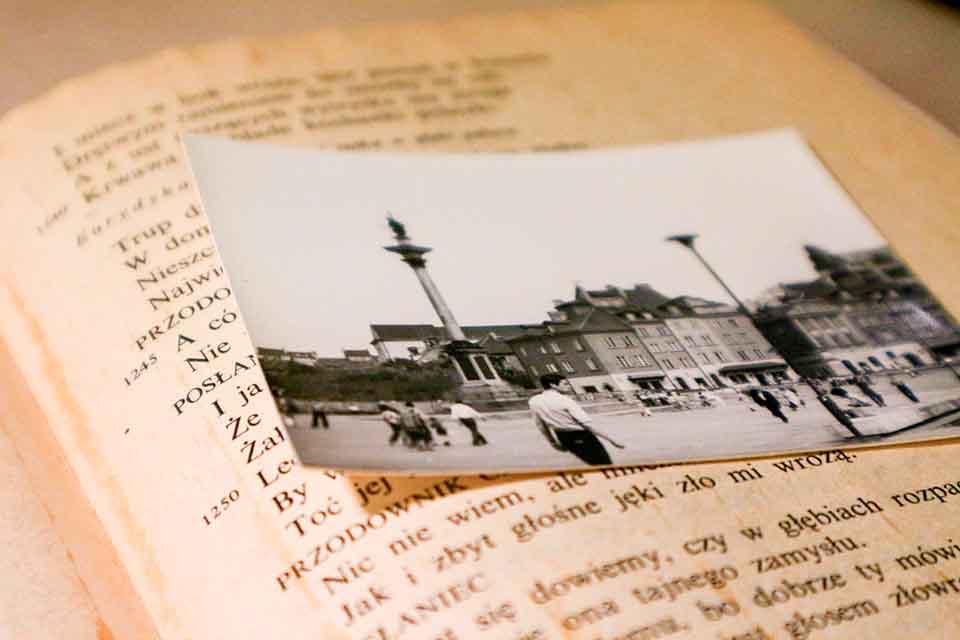
(Source: Pexels)
If we, Poles, do not start such a debate today, others will certainly do it — and such attempts are already noticeable, but from the perspective of pursuing foreign interests, delineating new spheres of influence and areas of dependence. The era of the Tehran-Yalta order is over.
- Translation from Polish by Andrew Woźniewicz.*






